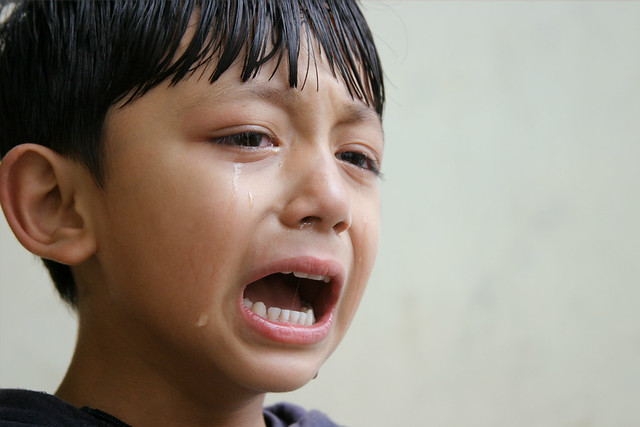Saturday, November 11, 2017
Consoling a Child
If you babysit regularly, work in childcare, or plan to have kids someday, you should know the importance of properly consoling a child. The main goal is to get to a point where you can cheer up any crying kid and make sure they leave with a full understanding of the situation and feeling happier, safer, and a little tougher.
This is what is arguably most important for you to understand: any child you see crying could have a paper cut, been excluded by a group of friends, or witnessed/been a victim to domestic violence. If you work in childcare, you see many crying faces every day. A child can simply be tired, or worse: he/she could have gone without food that day.
The point is that most often, you do not know exactly what a child is going through. Children will go to the people they look up to for comfort and advice, or even someone they feel safe around. So, if you’re a taller, somewhat adult-like human who frequently takes care of children, don’t be surprised when a smaller, red-faced human with tears flooding from the eyes comes, hyperventilating, to you for help.
You have to be ready to hear anything. Yes—absolutely anything.
Just this week, I had a wild variety of problems arise at work. For example, this morning, a 6-year-old girl sobbed for twenty minutes straight after she stubbed her pinky toe. I asked her to take off her shoe and sock so I could see it. While she did that, I prepared a bag of ice. When I returned, she was ready to show me the toe.
The little thing wasn’t even red! Did it matter? Obviously, it didn’t; she continued to cry loudly, staring at her foot in complete agony.
Although I treated this situation as seriously and compassionately as I could, it was by far the least of my worries this week.
Right in front of me, two girls bonded over their fathers’ current jail sentences. One of them told me that her father comes home soon. I asked her how she felt about it, and her face went blank.
“Well . . . I don’t really know,” she said. “I miss him, but I’m scared of him, too. I hope he’ll be nicer when he comes home. My step-mother said he will be much better.”
To put things in perspective, I had grown up with a manipulative, abusive father. However, my dad never went to jail, so my experience was pretty different. I was at a loss for words. But sometimes, that’s okay.
Sometimes children don’t need to be talked at. Rather they just need a pair of sympathetic ears.
So how do you console a child? Unfortunately, there’s no one-size-fits-all method. Everyone is different, and it’s hard to know how someone will react to advice or affection. The most import,ant thing you can do for a child is listen. Listen intently, ask questions, and get a full understanding. If you can’t relate, then at least you’re listening. If you can relate, pull from your own experience.
Make sure the child knows that you can offer a safe, nonjudgmental environment. Talk to other people (without revealing the child’s identity) and see what they have to say.
There needs to be a healthy balance. We want to support children as much as possible and make sure all of their needs are being met, but we also want to help prepare them to face the real world on their own.
One of the worst things you can do to a child is make them feel as if they don’t matter.
Subscribe to:
Post Comments (Atom)



No comments:
Post a Comment